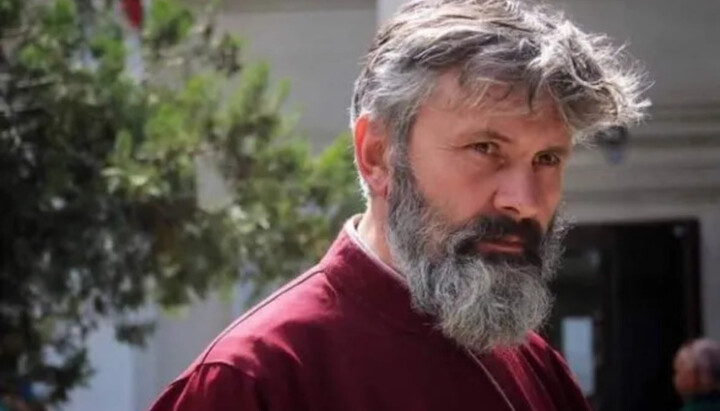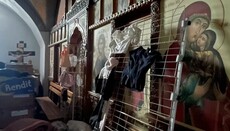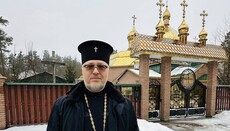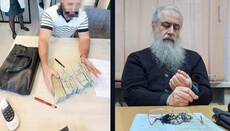Who and why beat the "hierarch" of the OCU?

The incident involving the beating of the OCU "metropolitan" not only evokes disgust and condemnation but also serves as further evidence of how dangerous the consequences of aggressive religious policies can be.
Once again, we condemn this beating and believe that acts of violence against clergy of any Church, denomination, or religion are unacceptable.
At the same time, we believe it is important to highlight several other points.
It is no secret that in recent years, supporters of the OCU have often displayed open aggression towards the clergy of the UOC.
Moreover, one can recall how comedians from "Kvartal 95" studio (a public entertainment company organized by Volodymyr Zelensky in 2003 – Ed.) called for physical violence against the clergy of our Church, and more recently, the far-right activist Karas promised to revive the "Inquisition" and directly threatened UOC believers and priests.
We also constantly hear insults from politicians who call us "FSB agents in cassocks," "KGB operatives", and other epithets and metaphors adding to society's negative perception of the UOC.
In the same vein, there are numerous media reports that have no scruples about insulting the UOC.
As a result of this madness, we see that not only UOC priests but people in cassocks in general and the authority of the Church as a whole are under threat. In other words, for those constantly hearing about "KGB agents in cassocks", it no longer matters whose cassock they tear off. And we will see this happen many more times.
The first point to consider is the influence of aggressive policies on society's perception of the Church. When one church structure actively demeans and persecutes another (or remains silent when radicals do so), it leads to ordinary people losing respect for the Church as an institution.
When regular people see some "clergy" insulting others, they naturally question how they can trust the clergy at all, especially when they witness the aggressive behavior of figures like OCU chaplain Hryshchuk.
By humiliating UOC priests and spreading hateful rhetoric, OCU supporters not only lose respect in society but also inflict harm upon themselves.
It’s important to remember that aggression often rebounds on those who initiate it.
Moreover, sooner or later, people will begin to recognize the injustice towards the UOC and start asking uncomfortable questions to the "hierarchy" of the OCU, which has done nothing to stop the violence against the Church.
For example, did you hear any condemnation from OCU representatives when Bishop Mykyta of Ivano-Frankivsk was beaten in Chernivtsi? Neither did we. Because there wasn’t any.
The second important aspect is the possibility that the beating of "Metropolitan" Kliment Kushch was staged. Why? Because in the context of the escalating conflict between religious communities, such incidents can be used to further fuel hatred and aggression.
The suspicion that the beating of the OCU "metropolitan" might have been a planned action aimed at discrediting the UOC grows stronger after Karas’s recent statements promising violence against UOC clergy. He needed an excuse, and now he has one.
Therefore, we are entitled to believe that such "beatings" could be weaponized in political and ideological struggles, creating an artificial situation aimed at escalating the conflict and increasing societal hatred towards the UOC.
This would allow OCU supporters to justify further aggressive actions and "cross the line" (which they have obviously done already).
However, if this is indeed the case – which we hope it is not – then we must warn that such a strategy is extremely dangerous. History is full of examples where those who incited aggression eventually became its victims themselves.











